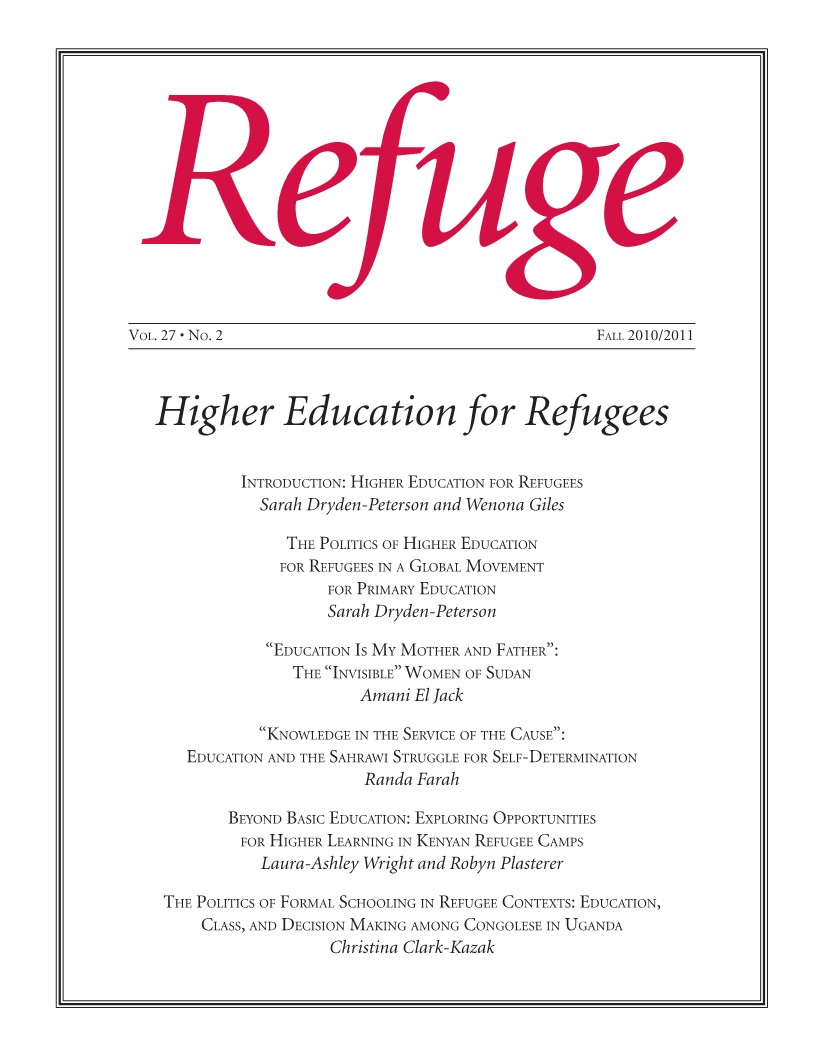“Education Is My Mother and Father”: The “Invisible” Women of Sudan
DOI:
https://doi.org/10.25071/1920-7336.34719Keywords:
Sudanese refuguees, Kakuma Refugee Camp, gender, women, girls, education, invisibilityAbstract
Education plays a significant role in informing the way people develop gender values, identities, relationships, and stereotypes. The education of refugees, however, takes place in multiple and diverse settings. Drawing on a decade of field research in Kenya, Sudan, Uganda, and North America, I examine the promises and challenges of education for refugees and argue that southern Sudanese refugee women and girls experience gendered and unequal access to education in protracted refugee sites such as the Kakuma refugee camp, as well as in resettled destinations such as Massachusetts. Many of these refugees, who are commonly referred to as the “lost boys and girls,” did not experience schooling in the context of a stable family life; that is why they often reiterate the Sudanese proverb, “Education is my mother and father.” I argue that tertiary education is crucial because it promotes self-reliance. It enables refugees, particularly women, to gain knowledge, voice, and skills which will give them access to better employment opportunities and earnings and thus enhance their equality and independence. Indeed, education provides a context within which to understand and make visible the changing nature of gender relationships of power.
Metrics
Downloads
Published
How to Cite
Issue
Section
License
Copyright (c) 2012 Amani El Jack

This work is licensed under a Creative Commons Attribution-NonCommercial 4.0 International License.
Refuge authors retain the copyright over their work, and license it to the general public under the Creative Commons Attribution-Non Commercial License International (CC BY-NC 4.0). This license allows for non-commercial use, reproduction and adaption of the material in any medium or format, with proper attribution. For general information on Creative Commons licences, visit the Creative Commons site. For the CC BY-NC 4.0 license, review the human readable summary.







